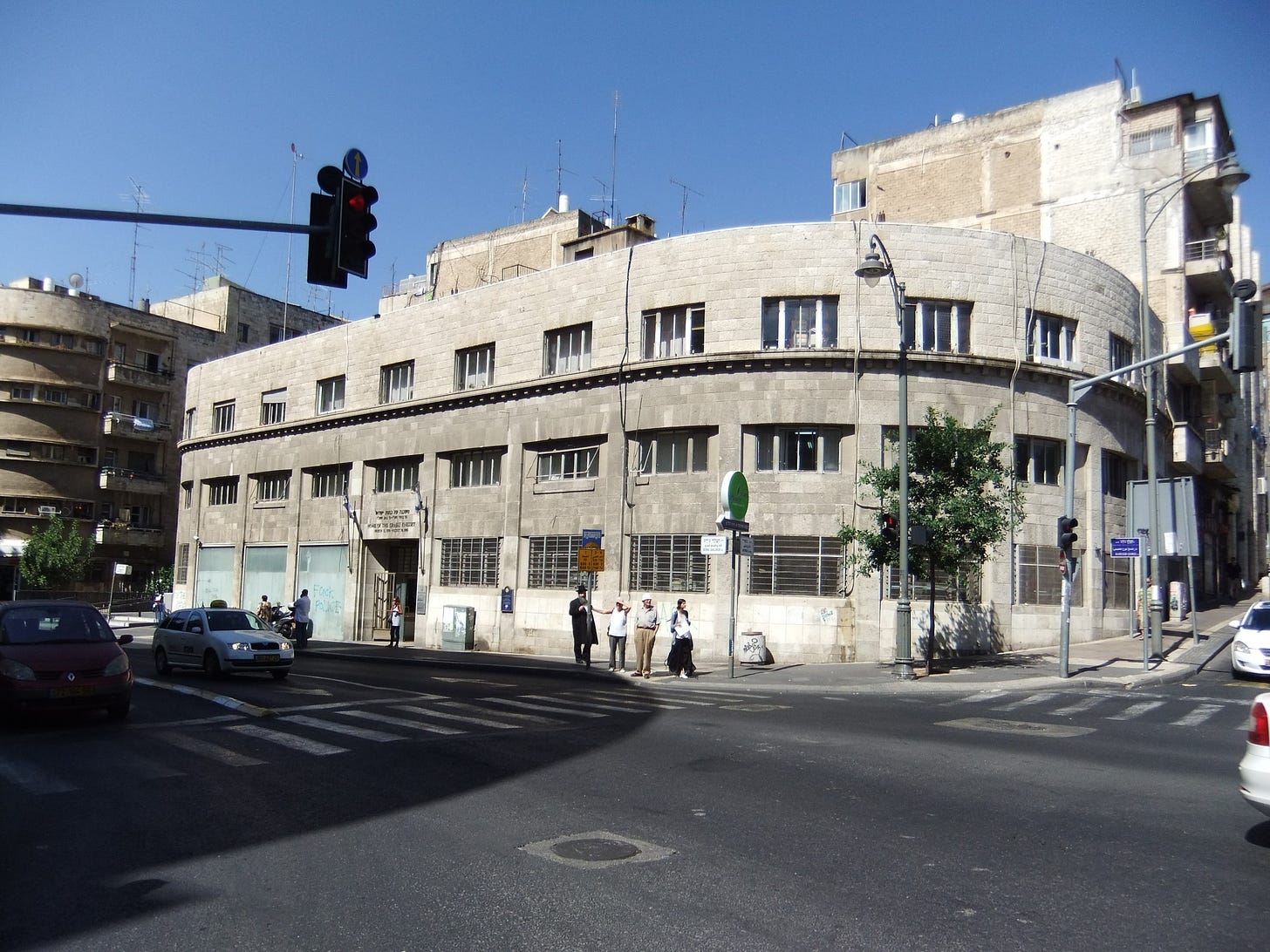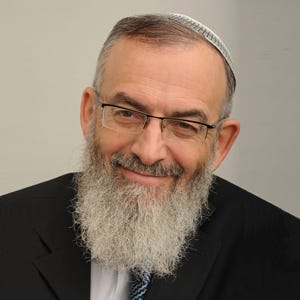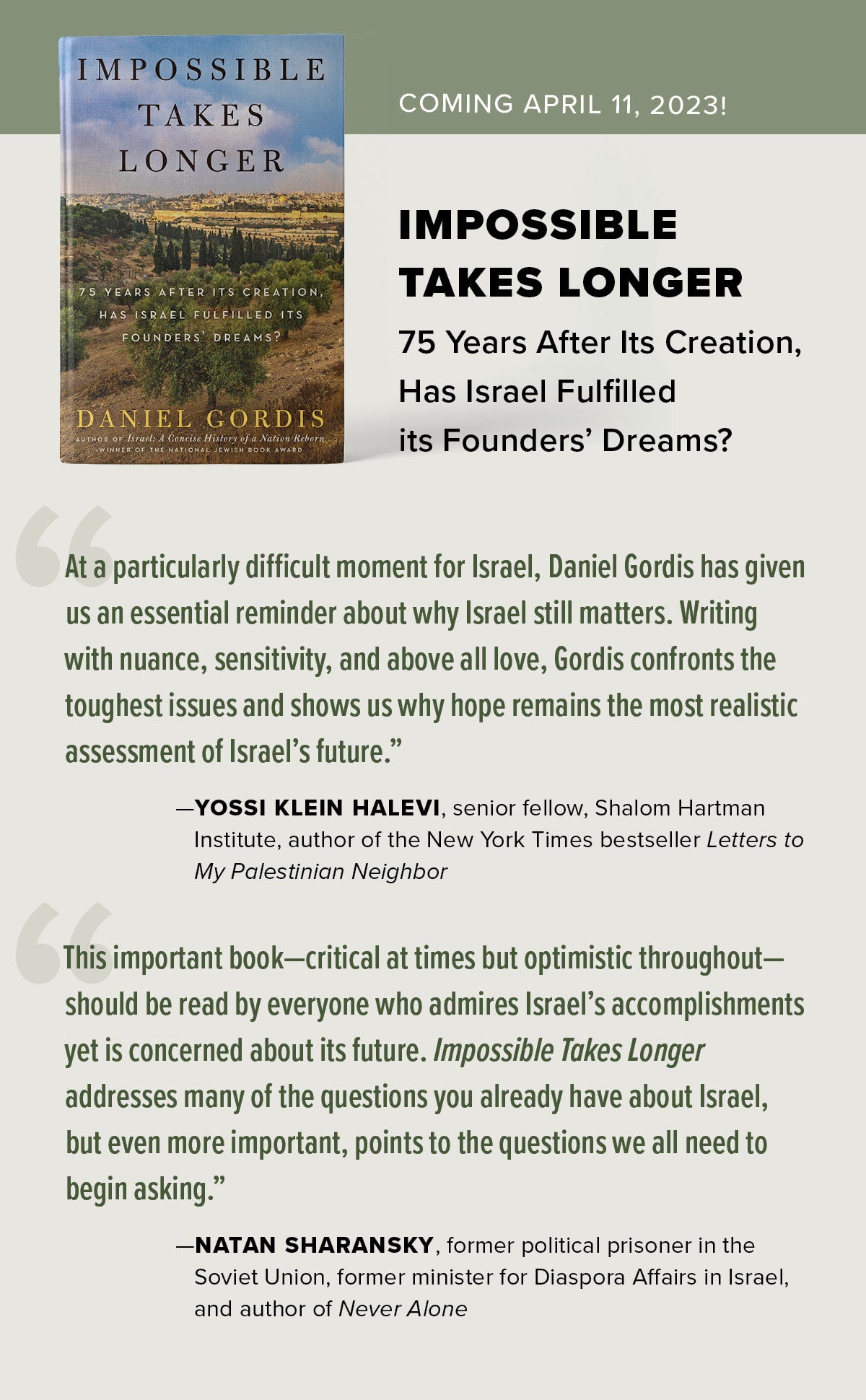On this day in Israeli history: the first meeting of the Knesset (and why it took place then ....)
Plus the diary of one man who had participated in Israel's first election just weeks earlier....
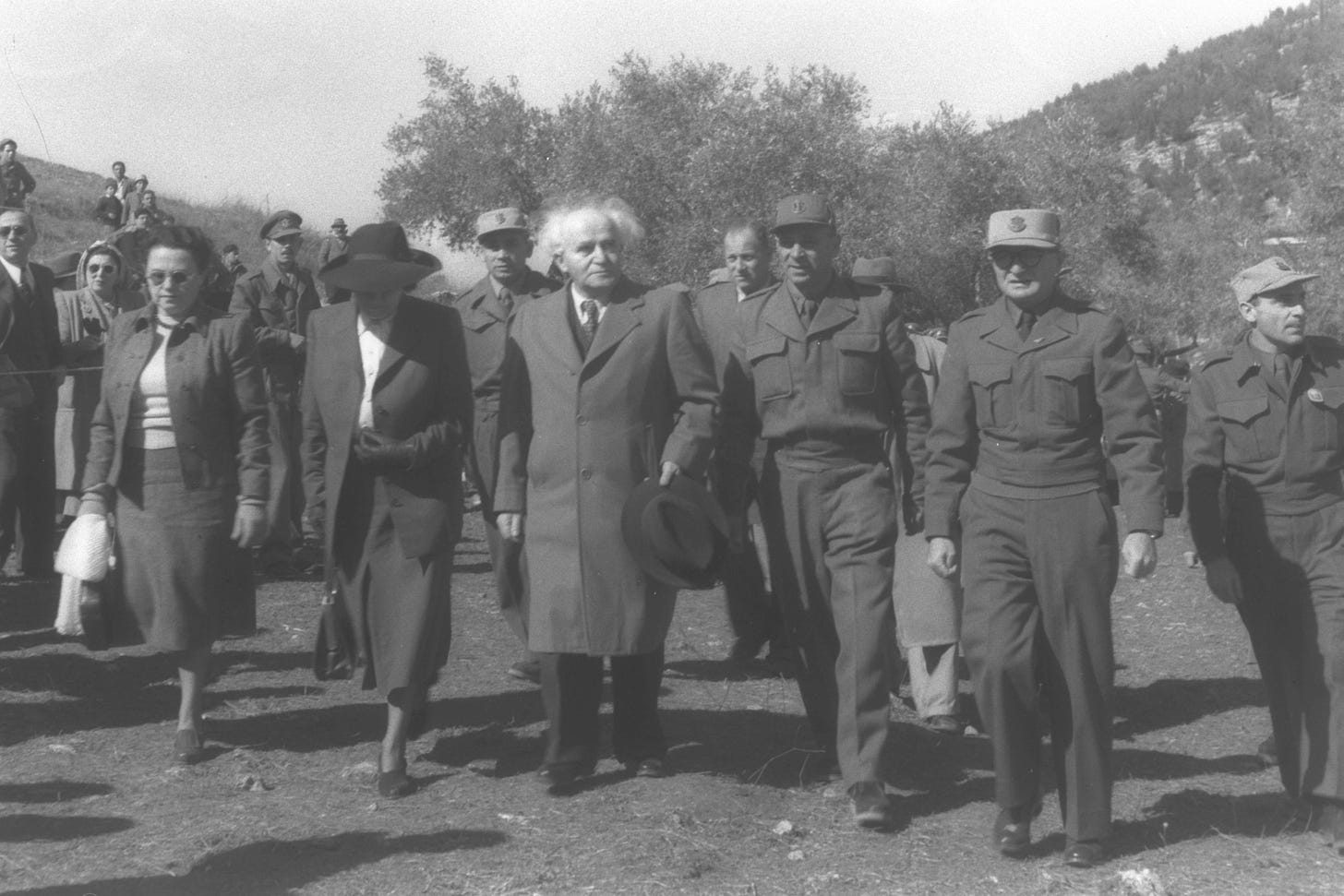
[The following section is loosely adapted from my forthcoming book, Impossible Takes Longer: 75 Years After Its Creation, Has Israel Fulfilled Its Founders' Dreams?]
Seventy four years ago this very day, on the holiday of Tu B’shvat which the Jewish world marks today, Israel’s Parliament, the Knesset, met for the first time. It met not in the iconic building that we all now recognize. Rather, until the mid 1960s, when the present Knesset was constructed, the Knesset would meet on King George Street, in a structure known as the Fromin Building, not far from the intersection of King George and Ben Yehuda, which virtually every tourist in Israel visits.
Why did the Knesset first meet on Tu B’shvat? That seems like a strange choice, no? A holiday with mostly agricultural meaning (Tu B’shvat is the “birthday of the trees,” the day by which one calculates how old a tree is for tithing and other ritual purposes)? Why that day of all days?
In many ways, that day was chosen because of a strange void in the Jewish calendar. Though the Jewish calendar had dates for leaving Egypt, for the receiving of the Torah at Mount Sinai, for the beginning of the siege around Jerusalem, for the fall of the Temples, and much more, there was no day on the calendar that marked the Israelites’ entry into the Promised Land after forty years of wandering in the desert.
In the Zionist “reinvention” of the Jewish calendar, Tu B’Shvat assumed that role. Why? Partly because the agricultural nature of Tu B’Shvat naturally connected to the theme of the land. But to an extent, it was also because of the language of the verse in Leviticus which speaks about the importance of recording the ages of the trees.
“When you enter the land [of Israel] and plant any tree for food, you shall regard its fruit as forbidden. Three years it shall be forbidden for you, not to be eaten.”
“When you enter the land of Israel” was a good enough “hook” to make Tu B’Shvat not only about the age of trees, but about the return to the land. And what better day to inaugurate the work of the Knesset?
Hence, today’s anniversary.
Several photographs of that day in February 1949 remain. One (posted at the very top of this column) shows Ben-Gurion at Sha’ar HaGai, outside Jerusalem, where he stopped on the way to the Knesset’s session to plant trees. Another photograph, just below, shows a gathering of children in the center of Jerusalem, not far from where the Knesset was convening, behind them a sign in celebration of Tu B’Shvat. The sign quoted a verse from Isaiah:
“In days to come Jacob shall take root, Israel shall bud and flower.”
Could there be a more perfect verse to quote on a day that was both Tu B’Shvat and the opening of the Knesset?
Yet the choice of the verse was even more ingenious than it might seem. Because of its appearance in the synagogue liturgy, the verse was well-known to many. They would have also known the second half of the verse, which did not appear on the sign, but which was pregnant with meaning for the day:
“and the face of the world shall fill with bounty.”
In just a few words, the verse manages to echo Tu B’Shvat (“take root,” “flower and bud”), the inauguration of the Knesset (“Jacob shall take root”), and a third theme as well: that the world would be enriched by Israel’s success. If only Israel today could recapture that sense of innocence, that sense of promise.
We will, I have little doubt.
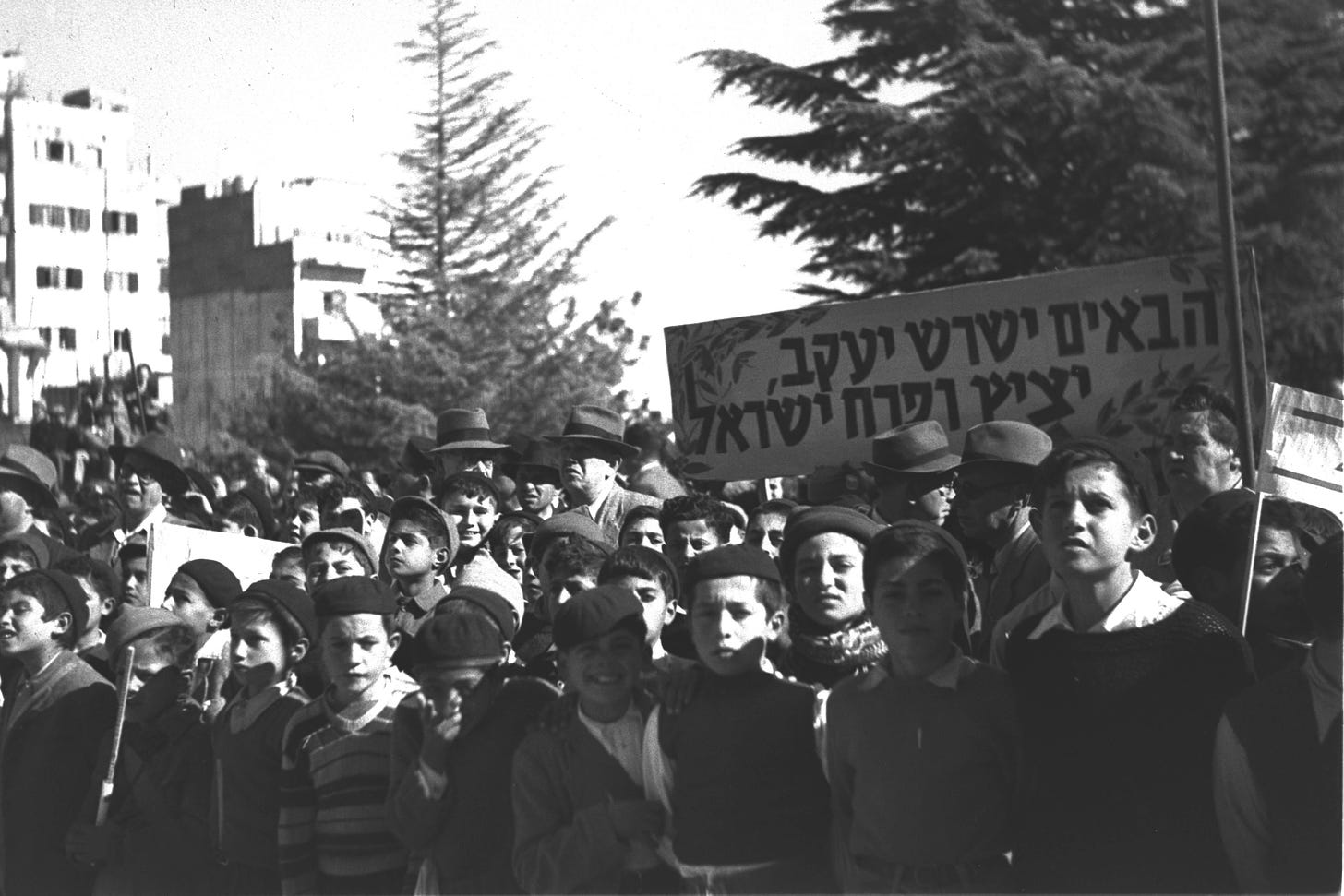
Given the ugliness of much of the political discourse in Israel today and the cynicism of much of the political process, I thought that on today’s anniversary of the first Knesset meeting, it would be appropriate to quote a section from my history of Israel and the diary of one Israeli man, Rabbi Moshe Yekutiel Alpert, who recalled what it felt like to take part in that day.
On January 25, 1949, an aura of sanctity pervaded the new state. Israel had been independent for some eight months, and on that day, with the war essentially over, it held its first national elections.
Given that it had been two thousand years since the Jews had been sovereign, the symbolic significance of these elections was lost on no one. Rabbi Moshe Yekutiel Alpert, an ultra-Orthodox rabbi, had served as the mukhtar (leader) of several Jewish communities in Jerusalem during the Mandate.
The time is 5:35 a.m. I woke up. Me, my wife and my brother R’ Shimon Leib, and my brother in-law Rabbi Netanel Saldovin and my son, Dov. After drinking our morning coffee, we dressed in our Sabbath attire in honor of this great and sacred day, “because this is the day God has made to be happy and rejoice.” (Psalms 118:24) Because after thousands of years or more of exile, that since the six days of creation, we have never been blessed with such a day, to be able to go and vote in a Jewish state. “Blessed is the One who has kept us alive, sustained us, and brought us to this time.”
Alpert finished his coffee, and armed with his Israeli identity card, set out to the polls, which opened at six a.m. “The entire way I marched along as if it was [the holiday of] Simchat Torah,1 as if I was carrying the Torah scroll in my arms and doing hakafos, simply because my Israeli identification card was in my hands. There were no limits to the happiness and joy I felt that very morning.”
The first to arrive, Alpert waited just minutes before being handed a card, on which, along with his name, was stamped the number “1.”
And then I experienced the holiest moment in my life, a moment that my father and grandfather were not privileged to experience. Only I, in my lifetime, was privileged to be at such a holy and pure moment. “Happy and blessed am I, happy and blessed is my portion!” I made the shehecheyanu blessing and I deposited the envelope in the ballot box.
Only after he voted did Rabbi Alpert, who normally began his day with his morning prayers, return home to recite them.
Alpert was hardly alone in his enthusiasm. Tel Aviv was mobbed, but the crowds were patient. Police and ambulances who had been sent to one of the city’s central traffic hubs reported that they had nothing to do. In Netanya, as people waited in lines for the polls to open, they spontaneously began to sing “Hatikvah,” once the anthem of the Zionist movement and now the anthem of the Jewish state.
The 440,095 people who turned out to vote represented nearly 87 percent of those eligible. …..
“Those were the days, my friend.” I don’t know if “we thought they’d never end” (all with apologies to Mary Hopkin), but we know what we need to do. Left or right, religious or traditional or secular, Jewish or Arab, immigrant or native—the response to today’s fraught, ugly political environment needs to be a restoration of the privilege that it is to be part of this unfolding Jewish drama.
It’s worrisome, it’s at times depressing. There’s much to repair. But this is precisely not the moment to walk away. It’s the moment to reread Rabbi Alpert’s diary, to remind ourselves that we are, literally, living in a miracle, and to recall that our most sacred duty in life is to preserve and to leave it enhanced for the generations who will come after us.
Coming up on Wednesday, our podcast conversation with Rabbi David Stav, one of Israel’s foremost religious personalities. A nominee several years ago for the position of Chief Rabbi of Israel (but blocked by the ultra-Orthdox because of their objections to his embracing vision of Judaism), Rabbi Stav is the rabbi of the city of Shoham, the founder of the organization Tzohar, and an inspiration to many hundreds of thousands of Israelis from all walks of life.
Politics aside, how does Rabbi Stav see this moment in Israeli history? What about the political battles unfolding worry him not about the Knesset, but about the Jewish soul of the country? In a moving and far-reaching conversation, Rabbi Stav shares with us a Judaism in the Jewish state that could be different, more embracing, and key to unifying our country.
That interview will be posted on Wednesday, for paid subscribers to Israel from the Inside.
Impossible Takes Longer, which addresses some of the above themes, will be published this April. It’s available now for pre-order on Amazon and Barnes & Noble.
Our twitter feed is here; feel free to join there, too.
Simchat Torah is one of the most joyous days of the Jewish calendar year, when Jews celebrate the gift of the Torah. In traditional communities, they dance in circles seven times—those dances are called hakafot or hakafos.



